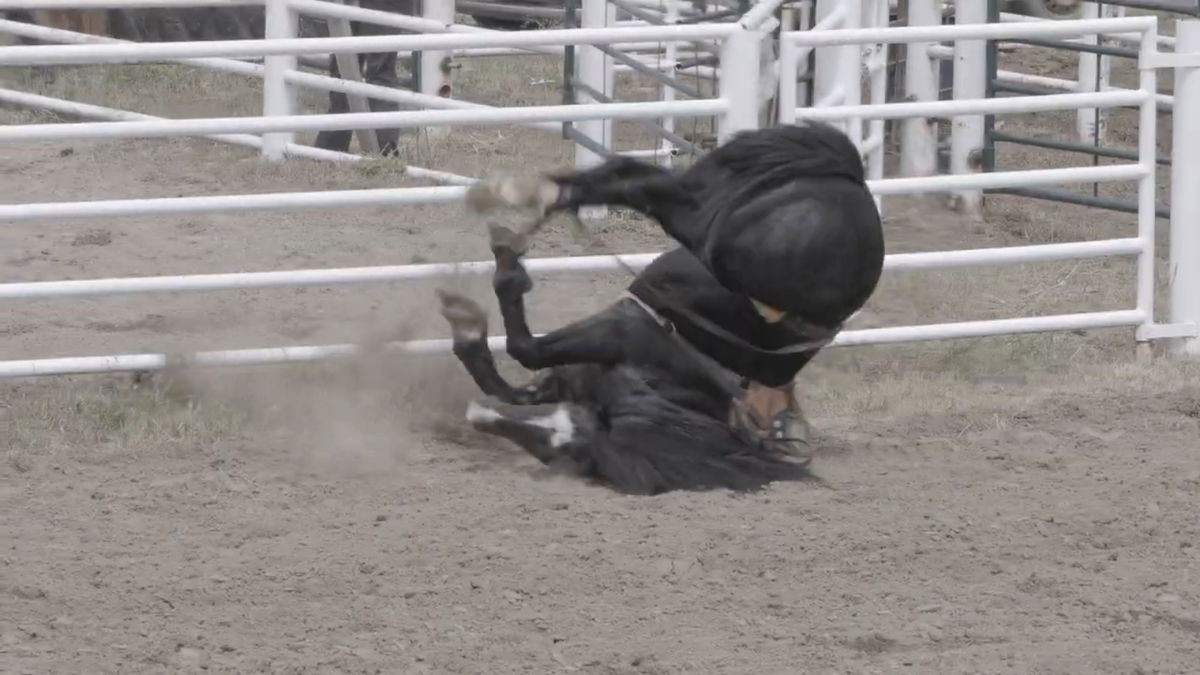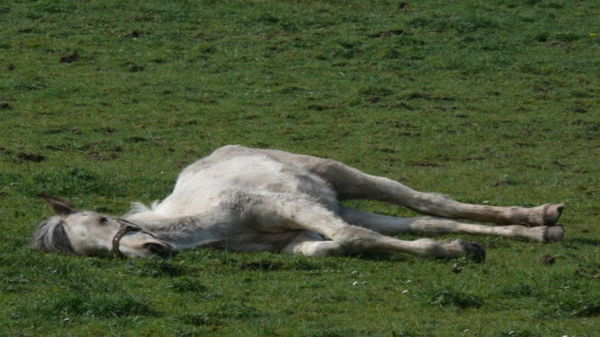

The international focus on safeguarding horses heightened after a disturbing incident at the 2021 Tokyo Summer Olympic Games. A German coach was disqualified for striking a horse, igniting conversations about animal cruelty. Germany has established comprehensive regulations to protect animal welfare, but the crucial aspect lies in how these rules are interpreted.
Watch What’s Trending Now!
According to Andrea Mihali, a veterinarian and horse expert from the German Animal Welfare Association, the issue of inadequate enforcement is of great concern. In order to strike a balance between control and protection, it is crucial to have clear guidelines in place and ensure they are strictly followed.
ADVERTISEMENT
Andrea Mihali calls for consistent enforcement
In equestrian sports, a common phenomenon exists wherein interpretations of rules pertaining to horse treatment vary between different riders and spectators. It is important to recognize that actions regarded as permissible for controlling horses by some individuals, may be seen differently by others. Andrea Mihali states, “Most of the rules in equestrian sport make sense, but there is an incredible lack of enforcement.” When there are inconsistencies in the enforcement of rules, it weakens their effectiveness and puts the welfare of horses at risk. Mihali further emphasizes that “There are stewards and judges at the preparation areas, but they often don’t pull the riders out when the regulations are violated.”

ADVERTISEMENT
It is still common to witness instances where horses are ridden for extended periods using the rollkur technique, which induces discomfort and fear. Mihali emphasizes that there have been cases where horses have competed despite bleeding from the mouth, indicating an overestimation of their capabilities.
ADVERTISEMENT
Horses Only, a credible website dedicated to horseback riding, reports that every year in the United States alone, there are over 100,000 accidents related to horseback riding. Interestingly, the data also reveals that horseback riding carries a greater risk compared to skiing and motorcycling. To tackle these issues effectively, it is imperative to ensure their consistent implementation, aimed at minimizing multiple equine fatalities.
Top Stories
Greg Biffle’s $4M Worth Prized Possession Still Without a Buyer Leaves NASCAR Fans Heartbroken

LIV Golf Braces for Another Possible Exit in Wake of Brooks Koepka Departure

Sean Payton Announces Retirement Plans as Broncos HC Demands Improvement From Bo Nix & Co. Before Playoffs

Biff Poggi All But Confirms Bryce Underwood’s Michigan Future After Announcing His Own Departure

Roger Federer Draws Criticism from Swiss Government Chief for Tourism Boom in Country

Amanda Balionis Confirms New Relationship Ending Months of Rumors

Advancing horse welfare through scientific monitoring
In order to tackle the issues pertaining to horse welfare in equestrian tournaments, an esteemed event known as CHIO Aachen has taken a significant step forward by introducing the “Scientist Circle” initiative.
ADVERTISEMENT
This pioneering pilot study strives to utilize scientific data in order to impartially assess the state of well-being of horses throughout the duration of the tournament. Birgit Rosenberg, head of sport at the CHIO Aachen, states, “For us, it is very important to lead the sport towards a good future.”
ADVERTISEMENT

A team of researchers from four different countries has come together to investigate and analyze the well-being of horses involved in equestrian sports. In order to measure levels of stress and joy, these researchers are utilizing a combination of cameras, fecal hormone testing, and brain wave monitoring on six horses. The study being conducted in Aachen shows great promise and has the potential to spark action within the equestrian community.
ADVERTISEMENT
Watch This Story: Series of Unfortunate Events Baffle Equestrian World as Cowboy Falls Prey to Accidental Shooting
ADVERTISEMENT
ADVERTISEMENT
ADVERTISEMENT

